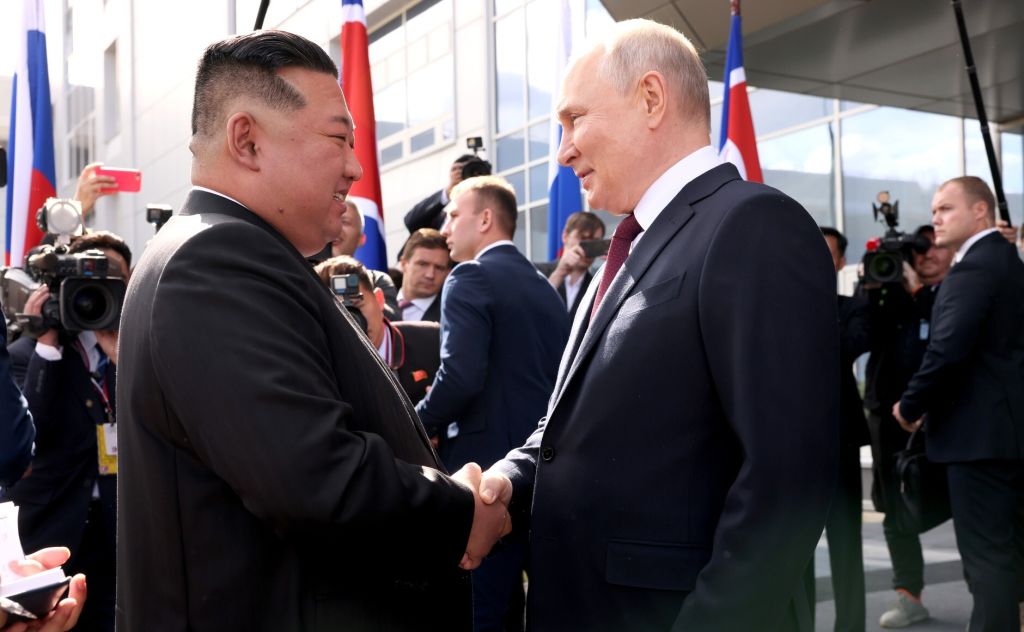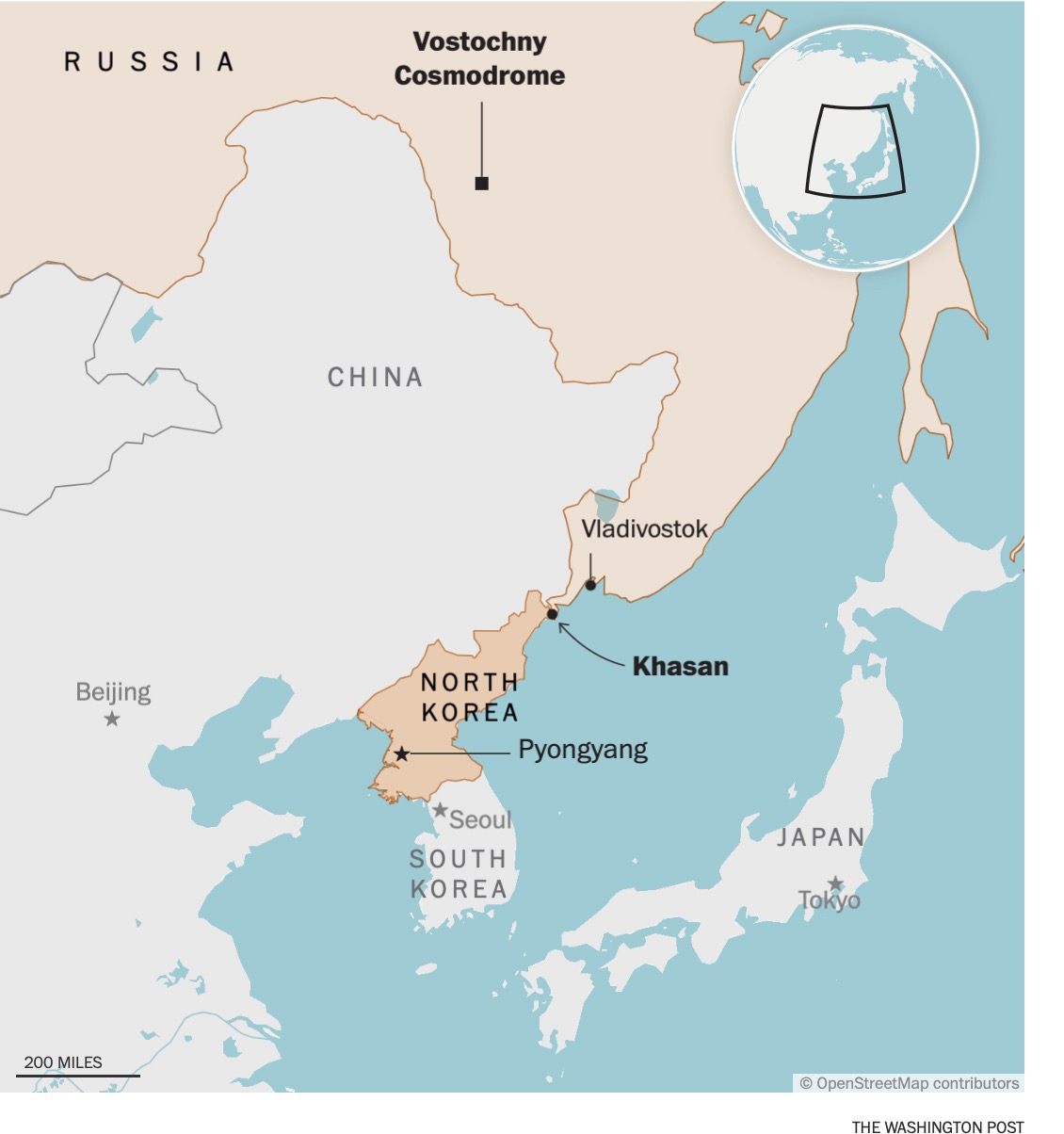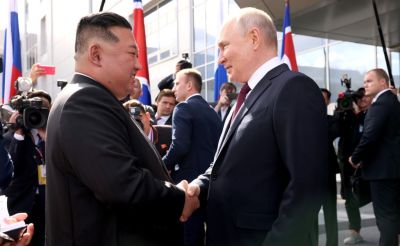Happy Thursday! Our email forwarding push wraps up at the end of the week, meaning tomorrow’s edition of TMD will be the last members-only edition that’s unlocked for all to read.
If you think someone in your life might appreciate what we’re doing, go ahead and send them this email and encourage them to click the “sign up for this newsletter” link near the top. To do more of the kind of work we want to do, we need more members. And the best way to get more members is word of mouth from the people who know us best. Thanks for your help.
Quick Hits: Today’s Top Stories
- The death toll from flooding in Libya has exceeded 6,000, Libyan health officials announced on Wednesday morning. Stormwater and two collapsed dams devastated the coastal city of Derna, washing entire buildings into the sea. More than 10,000 people are still missing, and the mayor of Derna said total deaths could reach up to 20,000 based on the districts of the city that were destroyed by the flood.
- Ukraine carried out a missile strike on dry docks used by Russia’s navy in Sevastopol—a port city in Crimea—setting fire to part of the port and inflicting considerable damage to a Russian submarine and landing ship. The Wednesday strike was one of the largest attacks on Russia’s Black Sea fleet since the beginning of the war, and Ukrainian officials implied that the missiles used in the attack were cruise missiles supplied by the United Kingdom and France.
- The Biden administration is reportedly planning to withhold $85 million in military aid to Egypt as a result of the country’s failure to comply with U.S. stipulations on aid, including the release of political prisoners. The administration plans to shift $55 million of the withheld funds—which are only a portion of the $1.3 billion in the U.S.’s annual military financing to Egypt—to Taiwan and the remaining $30 million to Lebanon.
- The Consumer Price Index rose 0.6 percent month-over-month and 3.7 percent annually in August, the Bureau of Labor Statistics reported Wednesday, up from 0.2 and 3.2 percent in July—and slightly above economists’ expectations. More than half of the monthly increase is the result of a late summer spike in gas prices, and the data may keep the Federal Reserve on track to hold interest rates steady at their meeting next week.
- House Republicans dropped a planned procedural vote on an appropriations bill to fund the Department of Defense on Wednesday after objections from spending hardliners. Members of the House Freedom Caucus said they wouldn’t move forward on the defense bill until they saw cuts to the rest of the spending bills. “The defense bill in and of itself was okay, but the bottom line is, what’s the overall spending?” said Republican Rep. Ralph Norman of South Carolina. “The American people want us to watch out for their tax dollars.” The House has passed only one of the twelve appropriations bills needed to fund the government as the September 30 deadline draws nearer.
- Republican Sen. Mitt Romney of Utah announced yesterday he will not seek reelection to the senate seat. “It’s time for a new generation of leaders,” Romney, who would have been 83 at the end of a second term, said in an announcement video.. He also told the Washington Post that he thought a prospective second term would not be as productive as his first. “It’s very difficult for the House to operate, from what I can tell,” he said. “Perhaps more importantly, we’re probably going to have either Trump or Biden as our next president. And Biden is unable to lead on important matters and Trump is unwilling to lead on important matters.”
- A federal judge on Wednesday temporarily blocked New Mexico Gov. Michelle Lujan Grisham’s executive order suspending the open and concealed carry of firearms in public in Bernalillo County, which includes the city of Albuquerque. U.S. District Judge David Urias—a Biden appointee—suspended enforcement of the Democrat’s order for two weeks, arguing it was likely unconstitutional. “To be honest with you, I think you have kind of a hard road here to get up,” Urias told an attorney representing the governor’s office.
A Burgeoning Bromance of Necessity

There’s a point, almost as far east as you can go on the Eurasian landmass, where China, Russia, and North Korea intersect. It was there that North Korean dictator Kim Jong Un’s green and gold, custom-built, armored train chugged excruciatingly slowly into Russia on Tuesday. The trip is Kim’s first out of the Hermit Kingdom since early 2019.
It was an unhurried journey on the train—Kim departed Pyongyang on Sunday. But, if your country’s flagship airline were routinely rated the worst in the world, you’d probably go for the bulletproof, bespoke locomotive, too—even if it could barely match the top speed of a moped.
After the long journey, Kim and Russian President Vladimir Putin finally met on Wednesday at Russia’s Vostochny Cosmodrome—a key spaceport in Russia’s far east, as depicted in the Washington Post map below. The pair smiled for cameras, pledged eternal friendship, and likely agreed to exchange munitions (from North Korea) for access to satellite and missile technology (from Russia), in violation of all manner of international sanctions. The meeting represents one of the ways Putin’s grinding war in Ukraine has offered Pyongyang leverage over its once very senior partner in Moscow—and the lengths to which Putin is going to win a war he never imagined would last this long, but which may now be in his interest to extend.

Putin greeted Kim with a long handshake as the North Korean leader stepped out of a limousine at the Russian rocket launch facility. The pair—who’ve only met in person once before, in Vladivostok, Russia, in 2019—spoke for several hours Wednesday, first in the company of their various ministers and then one-on-one. But this is just the latest episode in a complicated history between the two nations—dating back to the Korean War—that has been driven largely by strategic interest rather than deep affinity. “There has not been a lot of discussion in Russia about North Korea, about support for North Korea, or the importance of the North Korean regime until you’ve gotten into the invasion [of Ukraine],” Mark Cozad, senior international defense researcher at the RAND Corporation, tells TMD. “So I think that that’s a pretty telling turnabout.”
But we shouldn’t necessarily see this as the beginning of a beautiful friendship—at least not one based on mutual affection and respect, no matter how glad Putin says he is to see his old friend Kim. “This is a transactional relationship, first and foremost,” Patrick Cronin, Asia-Pacific security chair at Hudson Institute, tells TMD. “These are two heavily sanctioned countries who need something from the other—and both are prioritizing guns over butter.”
Kim—and his father and grandfather before him—has long prioritized the development of his country’s military over the well-being of its population. North Korean citizens are no strangers to shortages of food and other goods as their bellicose leaders devote the country’s already limited resources to building up its weapons stockpiles and developing its nuclear and intercontinental ballistic missile programs. The State Department estimated that North Korean military spending represented about 26 percent of its GDP in 2019, the highest of the 170 countries it evaluated.
That means one of the few things North Korea has in abundance matches something Putin needs, and has had trouble getting elsewhere: shells and ammunition. The U.S. has warned that such an arms deal may be imminent and National Security Adviser Jake Sullivan made only vague threats of consequences if it does come to pass—a spokesperson for the National Security Council had not responded to a request for comment on the summit by the time of publication. And while no official agreement was reached at the summit on providing munitions, that lack of public commitment doesn’t mean much from two incredibly opaque regimes. “What we’re seeing so far is what they want to show us,” Cronin says.
Kim did pledge to support Moscow in its ongoing invasion of Ukraine and parroted Putin’s characterization of the conflict, without referencing it specifically, as one primarily against “hegemonic” Western powers. “I want to assure you that we will always be together with Russia in the fight against imperialism,” Kim told Putin, in the presence of assembled state media reporters.
For Kim to provide arms to Russia would be a historical role-reversal, after the Soviet Union armed the North Koreans during the Korean War. But it wouldn’t be the first time since Putin’s invasion of Ukraine that he’s had to seek help from smaller neighbors in a way that demonstrated a certain degree of desperation. As we reported in June, Putin turned to Belarusian President Alexander Lukashenko to negotiate with Wagner leader Yevgeny Prigozhin as the warlord led a mutiny against senior Russian defense officials. “I think that’s what matters to [Putin]—this war effort,” says Cronin. “So even if he has to come begging in the East to a very junior partner … he at least can have the military arms that he needs to keep fighting his ‘special military operation’ all the way to the grave.” At this point, Putin likely sees extending the war as being to his advantage, particularly as the U.S. presidential election approaches and several leading candidates question continued military aid to Ukraine.
Though he’s turning to Kim with an ask now, Putin has historically supported international sanctions against North Korea over the country’s pursuit of a nuclear weapon, and he played coy yesterday about how far Moscow would go to aid Pyongyang, even as it was fairly clear what was on the table. “There are certain restrictions, Russia is following all of them,” Putin said Wednesday, referring obliquely to international sanctions. “There are things we can talk about, we’re discussing, thinking. Russia is a self-sufficient country, but there are things we can bring attention to, we’re discussing them.”
He did name a few of the things they could talk about: “The leader of North Korea shows great interest in space, in rocketry, and they are trying to develop space,” Putin said. “We’ll show our new objects. We’ll talk about all the issues without haste, there is time.”
The North Korean military has tried, unsuccessfully, several times this year to launch a spy satellite, and the summit’s venue alone—the hub of Russia’s space program—suggested that satellite and space technology might make its way to North Korea at some point in the future. “Kim has all sorts of needs, but his desire above all is to place military reconnaissance satellites above North Korean space so that he has better situational awareness,” Cronin tells TMD. “Kim Jong Un is really just picking up on a very old playbook that his grandfather used to play one power off the other. He clearly is exploiting Putin’s urgent need for artillery and conventional arms in order to extract something that he really wants, including space technology.”
Kim isn’t the only East Asian leader who has, in recent years, pledged unconditional friendship and support to Putin. Before the Russian president launched his invasion of Ukraine, Chinese President Xi Jinping welcomed him to Beijing and promised a partnership that would know “no limits”—though one limit, at least so far, does seem to be government-to-government lethal aid to Russia for its war in Ukraine. And while the three countries seem to be moving closer together in something almost reminiscent of former President George W. Bush’s “Axis of Evil,” Cozad said, it’s an alliance built on common enemies, not shared ideology.
Cronin agrees, adding China may be concerned about the prospect of Russia and North Korea escalating the war in Ukraine. “Yes, they are working in concert and are aligned generally against U.S. interests, but they’re in it for themselves,” he says. “The seams and the gaps between their aims are very large when you look more closely.”
Worth Your Time
- After hours of interviews with Mitt Romney, McKay Coppins released an excerpt of his forthcoming biography of the retiring senator in The Atlantic. Some of the book’s previously unpublished correspondences are already breaking news, including Romney’s texts to Sen. Mitch McConnell in the days leading up to the January 6 Capitol riots. “There are calls to burn down your home Mitch; to smuggle guns into D.C., and to storm the Capitol,” Romney wrote. “I hope that sufficient security plans are in place, but I am concerned that the instigator—the President—is the one who commands the reinforcements the D.C. and Capitol police might require.” But the less newsworthy elements are also fascinating. “Shortly after moving into his Senate office, Romney had hung a large rectangular map on the wall,” Coppins writes. “First printed in 1931 by Rand McNally, the ‘histomap’ attempted to chart the rise and fall of the world’s most powerful civilizations through 4,000 years of human history. When Romney first acquired the map, he saw it as a curiosity. After January 6, he became obsessed with it. He showed the map to visitors, brought it up in conversations and speeches. More than once, he found himself staring at it alone in his office at night. The Egyptian empire had reigned for some 900 years before it was overtaken by the Assyrians. Then the Persians, the Romans, the Mongolians, the Turks—each civilization had its turn, and eventually collapsed in on itself. Maybe the falls were inevitable. But what struck Romney most about the map was how thoroughly it was dominated by tyrants of some kind—pharaohs, emperors, kaisers, kings. ‘A man gets some people around him and begins to oppress and dominate others,’ he said the first time he showed me the map. ‘It’s a testosterone-related phenomenon, perhaps. I don’t know. But in the history of the world, that’s what happens.’ America’s experiment in self-rule ‘is fighting against human nature.’”
Presented Without Comment
Anderson Cooper: “Is Vice President Kamala Harris the best running mate for this president?”
Nancy Pelosi: “He thinks so, and that’s what matters.”
Also Presented Without Comment
Bloomberg: Taliban Gets Diplomatic Lift as China Envoy Presents Credentials
Toeing the Company Line
- In the newsletters: The Dispatch Politics crew explores Gov. Glenn Youngkin’s renewed focus on education policy ahead of Virginia’s legislative elections, Scott explains what skeptics get wrong when it comes to globalization, and Nick wonders if the House impeachment inquiry might benefit Republicans politically.
- On the podcasts: Scott joins Jonah on the Remnant to further defend globalization as an unalloyed force for good.
- On the site: Reuel Marc Gerecht and Ray Takeyh unpack the Biden administration’s hostage-exchange deal with Iran, while Anastasia Boden and Larry Salzman argue that the Supreme Court should seize its opportunity to revive the 14th Amendment’s Privileges or Immunities Clause.
Let Us Know
How should the U.S. respond to the deepening relationship between Russia and North Korea? Are Russia, North Korea, and China the new “Axis of Evil”?






Please note that we at The Dispatch hold ourselves, our work, and our commenters to a higher standard than other places on the internet. We welcome comments that foster genuine debate or discussion—including comments critical of us or our work—but responses that include ad hominem attacks on fellow Dispatch members or are intended to stoke fear and anger may be moderated.
With your membership, you only have the ability to comment on The Morning Dispatch articles. Consider upgrading to join the conversation everywhere.